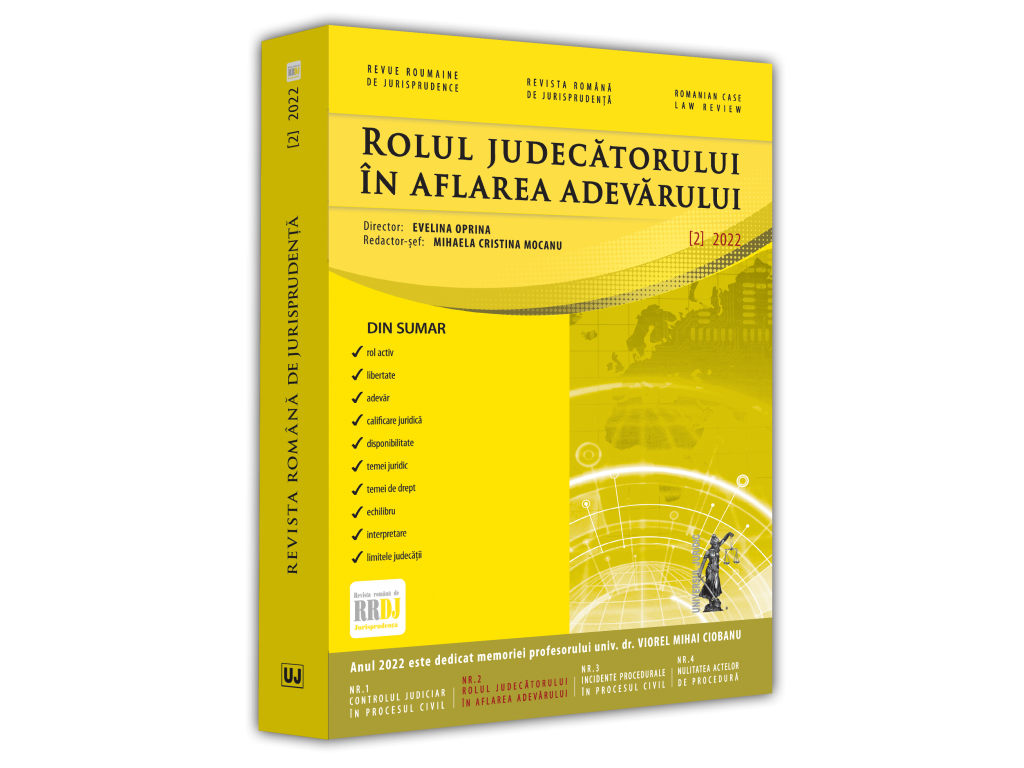Legal qualification of the action, determined by the factual situation presented. Limits to the application of the principle of the active role of the court
JURISPRUDENȚĂ COMENTATĂ ŞI ADNOTATĂ
Abstract
The active role of the judge must be understood in the context of ensuring a balance with the principle of availability, framed as a fundamental principle governing civil proceedings, according to which the parties have the right to dispose of the subject-matter of the proceedings (the subjective right or interest arising from the legal relationship at issue) and of the procedural means granted by law for this purpose; therefore, the parties can determine not only the existence of the proceedings by initiating legal proceedings. The active role of the judge must not affect the party's right of availability, but must be in harmony with the initiative of the parties, in order to establish the respective truth, to be in a logical and necessary connection with the principle of truth.
The claim before the court, namely the restitution of a sum of money, has a generic content which can be classified from a broad legal perspective in different legal hypotheses, whether contractual or tortious, which impose distinct cumulative conditions. The essential point is the position of the plaintiff, who intends to take the step of indicating, even if not with strict observance of the legal basis, decisive factual aspects which will enable the court to make a correct legal assessment of the facts.
Although reference has been made to a subsidiary classification under Art. 1.335 et seq. Civil Code (erroneously assessed by the party), the factual situation presented does not identify any concrete element referring, in reality, to the provisions of Article 1.345 Civil Code, as stated in the appeal. The general manner in which the factual issues were presented led pertinently to the respondent's presentation of its defence, but also to the reasoning of the trial court from a business management perspective, as intended by the party.








